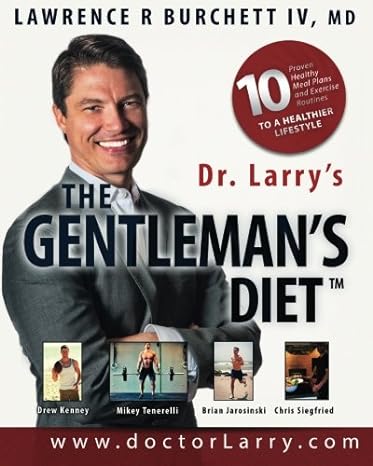Heart Attack vs Cardiac Arrest

[cs_content][cs_section bg_color=”hsl(0, 0%, 100%)” parallax=”false” separator_top_type=”none” separator_top_height=”50px” separator_top_angle_point=”50″ separator_bottom_type=”none” separator_bottom_height=”50px” separator_bottom_angle_point=”50″ style=”margin: 0px;padding: 45px 0px;”][cs_row inner_container=”true” marginless_columns=”false” style=”margin: 0px auto;padding: 0px;”][cs_column fade=”false” fade_animation=”in” fade_animation_offset=”45px” fade_duration=”750″ type=”2/3″ style=”padding: 0px;”][x_custom_headline level=”h1″ looks_like=”h1″ accent=”false”]New Study: Weekday mornings are no longer peak times for sudden cardiac arrests [/x_custom_headline][cs_text]Written by Dr. Larry
[dropcap]W[/dropcap]e used to think, based on data, that more people died Monday morning when they went back to work. Whether that was increased stress, anxiety or unclear reasons, it was a generally accepted idea. Not like we added any medications Sunday night or advised people to take an extra Aspirin Monday morning, the takeaway was focused on stress management. [/cs_text][x_video_player type=”16:9″ src=”https://youtu.be/lPr99huZnig” hide_controls=”false” autoplay=”false” no_container=”false” preload=”none” advanced_controls=”false” muted=”false” loop=”false” poster=””][cs_text]
A new, and probably better, study
shows that this isn’t the case. More people don’t die Monday morning like previously thought. If increased stress was thought to be the cause before, perhaps now there is just more stress in general all day everyday, not just a peak Monday morning. Or maybe stress isn’t what is driving these observational data.
As an ER doctor who treats people who have cardiac arrest, I don’t make much of this data or study. It doesn’t change the basics of living a healthy lifestyle and taking care of yourself—eating mostly healthy food, moving daily, getting sleep and managing stress; taking pills when appropriate. Looking forward to and loving your job is a plus, but many of us have bills to pay, and work can just be work.
Cardiac Arrest vs Heart Attack
A heart attack is when heart cells die. Like a stroke is when brain cells die. We most commonly think of a blockage of an artery as causing a heart attack—heart cells don’t get enough blood (and primarily oxygen), so they die. The more heart cells die, the bigger the heart attack, the more risk it may be lethal. A blockage is often treated with a balloon to open the blockage (angioplasty) and a little metal tube (stent) to keep it open thereafter, with medication and lifestyle change.
A cardiac arrest is not a heart attack, it’s distinct. When the heart stops beating, it is said to arrest or stop. This article talks about sudden cardiac arrest—which means, the heart just randomly stops beating. Most of the time, this is fatal, especially if it happens outside of a hospital. When the heart stops beating, that’s when we recommend CPR (especially chest compression’s), to keep blood circulating to limit the damage of the heart not beating. You can imagine—no blood circulating in your body, no blood getting to your brain, your vital organs—we can only survive that for seconds, maybe minutes. Not 10 minutes. Because sudden cardiac arrest is so often fatal, we want to study it, so we can know how to prevent it in the first place from ever happening.
So, heart attack is heart cells dying. Cardiac arrest is the heart stops beating. This may get a little confusing, but heart cells dying (heart attack) can lead to the heart to stop beating (cardiac arrest). Make sense? A heart attack can cause cardiac arrest. And the heart stopping beating is a common way that people die from a heart attack.
For more info on the study mentioned above from Newswise:
https://www.newswise.com/articles/view/701444/?sc=dwhr&xy=10020971[/cs_text][x_gap size=”50px”][/cs_column][cs_column fade=”false” fade_animation=”in” fade_animation_offset=”45px” fade_duration=”750″ type=”1/3″ style=”padding: 0px;”][x_widget_area sidebar=”sidebar-main” ][x_widget_area sidebar=”ups-sidebar-adoption-services” class=”man”][/cs_column][/cs_row][cs_row inner_container=”true” marginless_columns=”false” style=”margin: 0px auto;padding: 0px 0px 30px;border-style: solid;border-width: 1px;”][cs_column fade=”false” fade_animation=”in” fade_animation_offset=”45px” fade_duration=”750″ type=”1/1″ style=”padding: 0px;”][cs_text]
Featured Content
[/cs_text][/cs_column][/cs_row][/cs_section][cs_section parallax=”false” separator_top_type=”none” separator_top_height=”50px” separator_top_angle_point=”50″ separator_bottom_type=”none” separator_bottom_height=”50px” separator_bottom_angle_point=”50″ style=”margin: 0px;padding: 20px 0px 0px;”][cs_row inner_container=”true” marginless_columns=”false” style=”margin: 0px auto;padding: 0px;”][cs_column fade=”false” fade_animation=”in” fade_animation_offset=”45px” fade_duration=”750″ type=”1/1″ style=”padding: 0px;”][ess_grid alias=”featured_content”][/cs_column][/cs_row][/cs_section][/cs_content]


